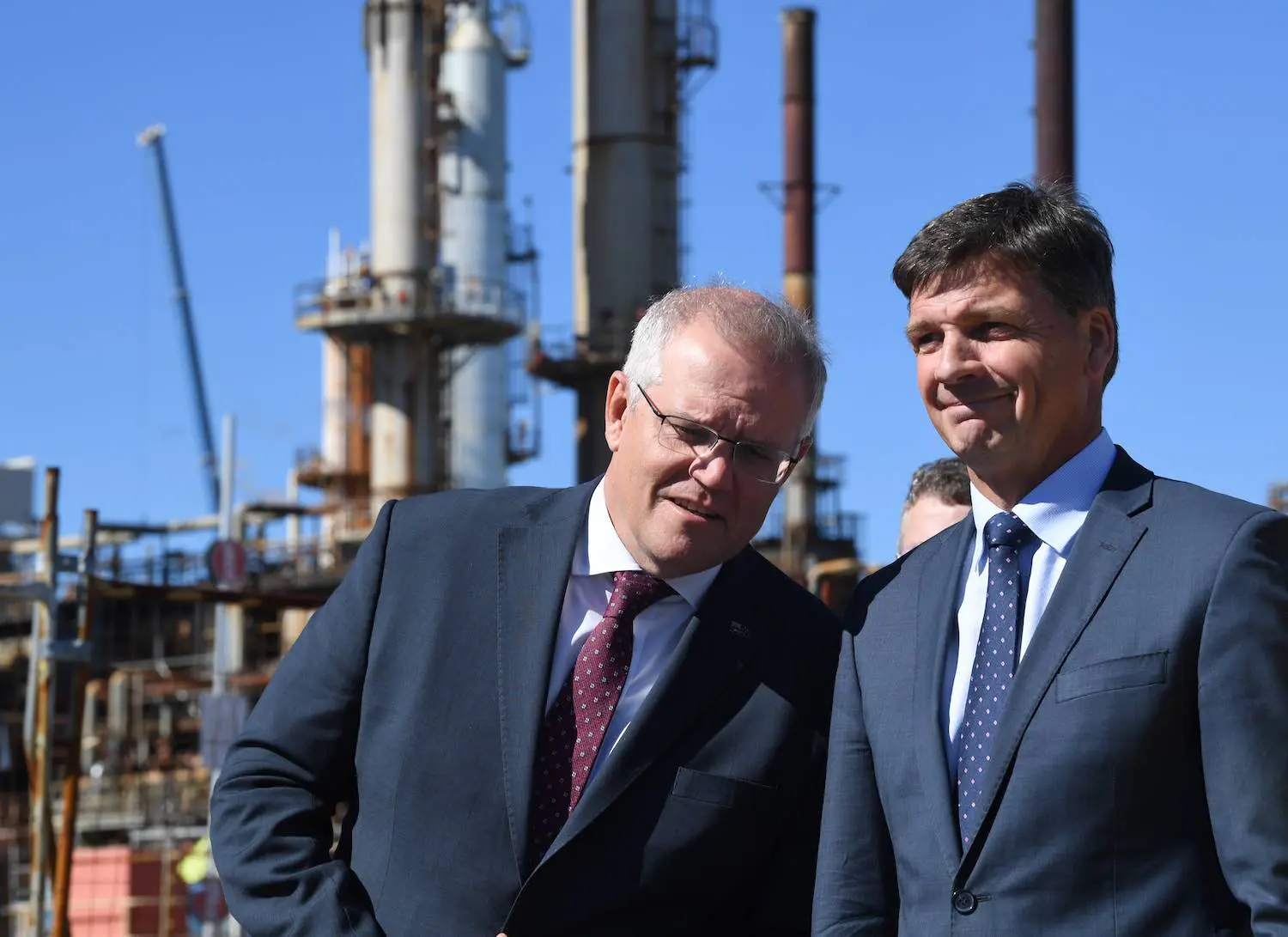When Prime Minister Scott Morrison announced last month he would spend $2.4 billion of taxpayer funds to bail-out Australia’s last two oil refineries, he pitched it as a measure to protect national security, save jobs and keep fuel prices down.
But a new report from investment bank Morgan Stanley suggests shareholders in Australian fuel giant Ampol, one of the two recipients of the bail out, could also reap the benefits of corporate welfare – potentially receiving as much as $900 million in cash payouts over the next few years.
The analysts predict the company will use some of the Commonwealth’s cash to fund “share buybacks” – a way of funnelling cash straight back to shareholders, different in form, but in essence the same as paying out a dividend.
Australia’s oil refineries have been in decline for some years, and business headwinds were exacerbated by the pandemic. BP and ExxonMobil both announced they would close their refineries in WA and Victoria this year, and the two remaining refineries were threatening to go the same way. That would leave Australia unable to refine oil onshore, and 100 per cent reliant on imports of petrol, diesel and jet fuel – something the government said would push the cost of fuel up by 1 cent a litre.
To fend off this scenario, last month the federal government announced a $2.4 billion bail-out for those two remaining oil refineries: Ampol’s Brisbane refinery, and Viva Energy’s Geelong refinery.
“This is a key plank of our plan to secure Australia’s recovery from the pandemic, and to prepare for any future crises,” Morrison said at Ampol’s Brisbane refinery. “Shoring up our fuel security means protecting 1250 jobs, giving certainty to key industries, and bolstering our national security.”
The package included up to $109 million a year to subsidise the continued operation of Ampol’s Lytto refinery in Brisbane “during periods of low refining margins” and $125 million to upgrade the plant so it can produce low-sulfur fuel. The subsidies would only kick-in once profit margins fall below a certain level. In other words, the government is underwriting the facility.
It is clear from Ampol’s ASX announcement following the bail-out that the company could have continued to operate the refinery without the bail-out. The problem was, it was getting to the point where it didn’t seem worth it for its shareholders. Following the coronavirus outbreak, demand for jet fuel in particular fell of a cliff, and remains far off its pre-pandemic levels. Road travel also dropped, though it is now picking up again.
The government’s bail-out, then, is not about saving the company, which has other lines of business than oil refining. It’s about paying the company and its shareholders to keep the plant open, which it has agreed to do until “at least 2027”.
As Ampol itself said of the bail-out, “Support during periods of low margins improves the quality of Lytton’s earnings profile by significantly reducing earnings volatility and earnings downside risk, which should result in a higher earnings outcome on average.”
Given Ampol seemed to be quite willing to shut the refinery, and given that scenario appeared to be unacceptable to the Morrison government, the company held most of the cards.
The bail-out has investors bullish about the future, and Morgan Stanley is now predicting Ampol’s share price, already well above its pre-bail out low at $29.50, will climb to $35 a share.
Morgan Stanley says Ampol now has “ample room” to use between $750 to $900 million to fund share buyback schemes, and still “leave additional capacity for growth”. It also has $750 million worth of franking credits it can distribute to shareholders.
“We think it’s likely Ampol will be able to deliver on another three A$250-A$300m share buybacks over the next three years – with potentially the first one in August,” they wrote. “We believe the company is more likely to continue its surplus capital return in off-market share buybacks and dividends. We think it’s possible that one off-market share buy-back will be announced at its 1H21 result.”
Ampol did not comment on whether it was considering share buybacks. However, in an ASX announcement following the bail-out, it signalled buybacks were on the cards.
“Ampol will assess balance sheet capacity after the later of enactment of the support initiativesand Ampol’s 1H 2021 financial result in August2021, with excess capacity used for investment in incremental growth and/or additional shareholder returns as per our Capital Allocation Framework.”










